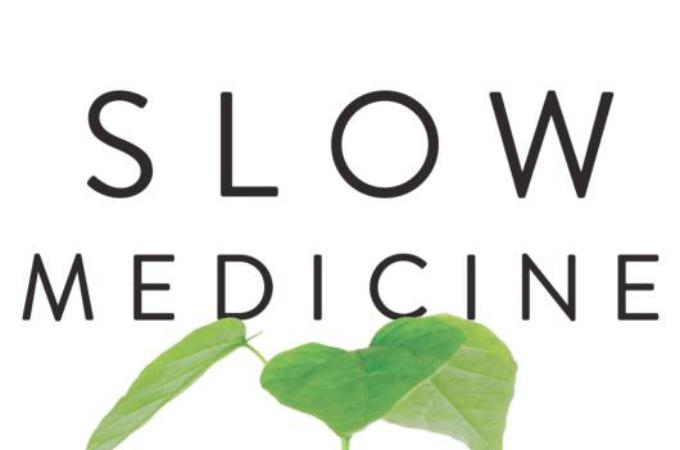Extraordinary physician shows medicine as a spiritual vocation, not job
"Slow Medicine: The Way to Healing" by Victoria Sweet, M.D. Riverhead Books (New York, 2017). 304 pp., $27.
In her acclaimed 2012 book, "God's Hotel," Dr. Victoria Sweet wrote about the 20 years she practiced at San Francisco's Laguna Honda Hospital, the last public almshouse in America. During those years, she watched the transformation of medicine into health care, but she also discovered an antidote in the writings of St. Hildegard of Bingen, the 12th-century mystic, nun and doctor.
Sweet's wonderful new book, "Slow Medicine: The Way to Healing," is a chronological narrative of her education and experiences, highlighting the professors, nurses, aides and patients who were her teachers.
In medical school, internship and residency, Sweet learned and mastered "fast medicine" -- the mechanistic basis of modern medicine that asks "What is wrong? And how can I fix it?" From Hildegard, an accomplished gardener and herbalist, she learned "slow medicine," based on a model of the body as a plant. Much of the pleasure of this book is seeing how she practices both fast and slow medicine.
Sweet writes beautifully. She obeys the dictum that a writer should show, not tell, and gives us incisive word portraits and medical narratives that do not condescend to a lay audience. Her prose is clear and direct, with a warmth and intelligence that engages the reader from the book's first pages, a harrowing description of her father's near-fatal hospital admission.
"Slow Medicine" is imbued with a vocational sense of medicine, of the spiritual ground of being a healer. More than once Sweet reminds us that, in the Middle Ages, "nursing and doctoring were done by nuns and monks as a calling."
There is a contemplative dimension to her practice of medicine. Slow medicine is a "way of seeing, doing, and being. ... of stepping back and seeing the patient in the context of his environment. And asking, 'What is in the way of the patient's own healing power of nature?' And then removing what's in the way. It is a way of doing, which is slow, methodical and step by step."
Once, when she was an intern, Sweet helped care for a patient who was in the intensive care unity for 63 days. At one point a nurse challenged such futile care for a patient who was "past the point of no return." "What are you doing! Mrs. C is dying! She's nearly dead! I don't know why, you don't know why, but she's never going to leave this ICU, not ever!" And because the ICU nurse confronted her, "I got up and went into Mrs. C's room, stood by her bed, and looked. And saw. That was another distinction fast medicine didn't pay attention to. Looking and seeing. ... Now I did see, and I was shocked."
When doctors do not have time to look at patients, when they become slaves to the demands of electronic health records, they can no longer appreciate that "the essence of medicine is story -- finding the right story, understanding the true story, being unsatisfied with a story that does not make sense. Health care, on the other hand, deconstructs story into thousands of tiny pieces -- pages of boxes and check marks for which no one is responsible."
And being a doctor means accepting responsibility, as she learns when she, alone in the back of a medical helicopter with an unconscious, dying patient, made the decision to give him an injection of atropine, used to relieve spasms. "This is what is so detrimental about algorithms, regulations, requirements and mandates. They lift that mantle of responsibility off the doctor and turn him or her into a provider, a middleman, someone who takes the box of health care off the truck and delivers it."
Sweet is an extraordinary physician. It is clear from the medical narratives that she is a gifted diagnostician, in part because of her intelligence and training, but also because of her humility. Medicine, she reminds us, is a craft. "The craft of medicine is a beautiful thing, very human, very much about body, not only the patient's real bleeding body, but through and in your own body. ... You can't fake it. It takes a warm human energy, a commitment, a struggle, a giving up of a piece of yourself to attain that craft."
"Slow Medicine" is not an angry or despairing litany of the sins of the health care industry, but it is a sober and lucid examination of what we lose when medicine is shaped by economics and not vocation, when it is informed by litigation and not reverence. One can only hope, and pray, that Sweet is not a prophet crying in the wilderness.
- - -
Linner, a freelance writer and reviewer, has a master's degree in theology from Weston Jesuit School of Theology.



















